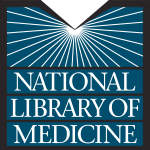- 行业: Library & information science
- Number of terms: 152252
- Number of blossaries: 0
- Company Profile:
The National Library of Medicine (NLM), on the campus of the National Institutes of Health in Bethesda, Maryland, is the world's largest medical library. The Library collects materials and provides information and research services in all areas of biomedicine and health care.
To reduce the severity of (a disease) or virulence or vitality of (a pathogenic agent), (a procedure to attenuate severe diabetes, attenuated bacilli. )
Industry:Medical
The caspases are a family of proteases responsible for carrying out the cell death process. In a living cell, these proteases are kept inactive by proteins on the mitochondrial cell surface from the BcL-2 family. When a cell is exposed to cell death signals such as ischemia, chemotherapy or radiation, BcL-2 function is blocked and caspase activators initiate the cell death cascade.
Industry:Medical
One of a series of bony or cartilaginous arches that develop in the walls of the mouth cavity and pharynx of a vertebrate embryo, consist typically of a curved segmented bar or rod on each side meeting the contralateral bar or rod at the ventral end, and correspond to the gill arches of fishes and amphibians -- called also pharyngeal arch, visceral arch.
Industry:Medical
1) Present from birth, but not necessarily genetic
2) Congenital conditions are those present from birth. Birth defects are described as being congenital. They can be caused by a genetic mutation, an unfavorable environment in the uterus, or a combination of both factors.
Industry:Medical
1) Any of numerous congenital deformities of the foot in which it is twisted out of position or shape--called also talipes.
2) A foot affected with clubfoot.
Industry:Medical
A segment of DNA that is equivalent to a gene and that specifies a single functional unit (as a protein or enzyme. )
Industry:Medical
An abnormal growth of tissue in the lining of the bowel. Polyps are a risk factor for colon cancer.
Industry:Medical
An individual who has two different abnormal alleles at a particular locus, one on each chromosome of a pair; usually refers to individuals affected with an autosomal recessive disorder.
Industry:Medical
1) The largest part of the brain. It is divided into two hemispheres, or halves, called the cerebral hemispheres. Areas within the cerebrum control muscle functions and also control speech, thought, emotions, reading, writing, and learning.
2) An enlarged anterior or upper part of the brain; especially: the expanded anterior portion of the brain that in higher mammals overlies the rest of the brain, consists of cerebral hemispheres and connecting structures, and is considered to be the seat of conscious mental processes.
Industry:Medical
